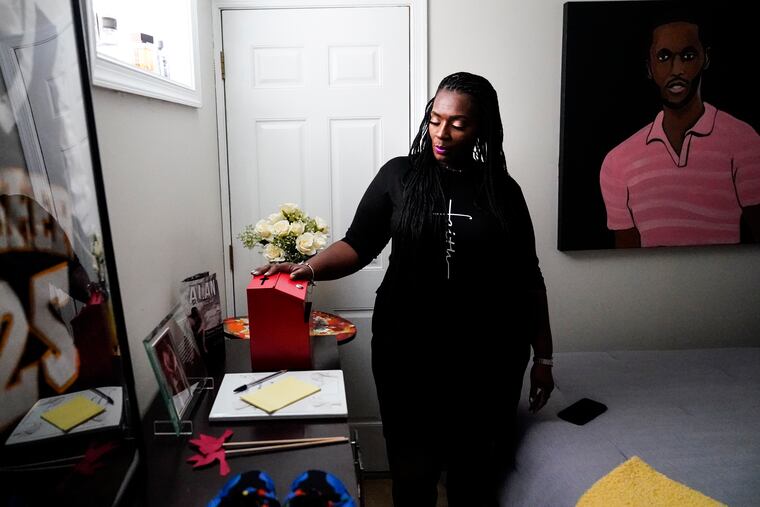Amid alarming violence, we’ve had an important win for victims | Opinion
The federal Crime Victims Fund was projected to reach a 10-year low by the end of 2021, threatening to shortchange those affected by gun violence.

Victims of crimes, including gun and domestic violence, are often left to wait for months to get the support they need to heal and recover from an attack. Thankfully, federal legislators on both sides of the aisle were able to come together to change that by providing critical resources for the Victims of Crime Act (VOCA). Public and nonprofit agencies rely on these funds to provide the services desperately needed by people affected by violence at the worst possible time in their lives.
People like Latrice Felix.
Felix’s 28-year-old son, Alan Womack Jr., was shot and killed Feb. 28, 2020, in a fight outside of his gym. The college graduate lived in a suburb of Philadelphia and worked with young people who had been involved in the criminal justice system to help put them on a better path.
» READ MORE: Philadelphia has a crisis of homicides, but also of neglecting gun violence survivors | Opinion
Following her son’s death, Felix told an Associated Press reporter that “I didn’t want to die. But I didn’t want to live, either.” She signed up for grief counseling with the Anti-Violence Partnership of Philadelphia (AVP) but was on the waitlist for six months before a provider had an opening. With the increased rate of violence across the city, the AVP reported 174 people on its waitlist at the end of June, compared with about 30 people in June 2020.
For 40 years, VOCA grants funded through the Crime Victims Fund have helped provide social services and compensation to crime victims — not from taxpayer dollars, but from fines and monetary penalties against criminal defendants who lost at trial. In recent years, available funds declined precipitously as more defendants’ cases were settled before they could go to trial. The Crime Victims Fund was projected to reach a 10-year low by the end of 2021 — down to $4 billion from $8.2 billion in 2012.
In Pennsylvania, that led to a drop of grant awards for nonprofit agencies helping victims recover and heal from $86.8 million in 2016 to $63.8 million in 2020. It was on track to drop even lower in 2021.
These decreases couldn’t come at a worse time. Since the start of the pandemic, gun violence has risen to dangerous levels in many communities across the commonwealth. And it’s why it was critical that a bipartisan group of legislators, including one of the authors of this op-ed, created HR 1652, the “VOCA Fix Act.” The bill restores the original goals of VOCA funding by directing monetary penalties associated with deferred prosecution and non-prosecution agreements into the Crime Victims Fund, as well as penalties associated with convictions at trial.
In March, the House overwhelmingly approved the bill 384-38; the Senate then passed the bill unanimously on July 22, and President Joe Biden signed it into law before the week’s end. The bipartisan group of legislators who led the bill was invited to witness President Biden signing it into law in the East Room of the White House, joined by the victim advocacy groups whose tireless dedication helped garner such widespread support.
With the change in administrations, we are seeing some lowering of partisan temperatures and an improved ability to pass legislation that benefits communities across the country. With this bill, basic decency and sympathy for the suffering of our neighbors were sufficient to unite our legislature. Thanks to the passage of the VOCA Fix Act, millions of victims of crime each year will have help paying medical bills, covering lost wages, and paying funeral costs. People like Latrice Felix will have a chance to access counseling when they are in crisis, rather than having to fend for themselves. As a testament to Felix’s strength, she is now working to raise funds for a grief cafe, where others who have lost loved ones can share their feelings and talk to a therapist.
The good news only goes so far, however. Every day, more people become victims of violent crime. They mourn and bury loved ones, spend hours in hospitals, and try to rebuild a life traumatized in a moment.
Our goal as advocates and legislators is to ensure everyone can live a life free from gun violence, where fewer people need the resources supported by VOCA to recover from tragedy. As we continue to support victims of violent crime, we will also redouble our efforts to build the bipartisan support it will take to prevent more victims from being created — starting with enacting commonsense gun safety policies that will keep communities safe.
Mary Gay Scanlon, a Pennsylvania Democratic representative in Congress, coled HR 1652. Adam Garber is executive director of the CeaseFirePA Education Fund.